'It's a battle': Arizona prison inmates cite healthcare delays amid ACLU's latest move in legal saga

Prison inmates cite healthcare delays amid ACLU lawsuit
Healthcare issues in Arizona prisons led the ACLU to seek a receiver while agencies like NaphCare and the ADCRR are defending their actions. FOX 10's Justin Lum investigates.
PHOENIX - Advocates for inmates incarcerated by Arizona’s Department of Corrections, Rehabilitation, and Reentry say ADCRR doesn’t have what’s necessary to run a successful healthcare system, according to the ACLU’s motion for a receiver.
Lawyers say NaphCare, the for-profit healthcare provider contracted by the state, remains "woefully inadequate."
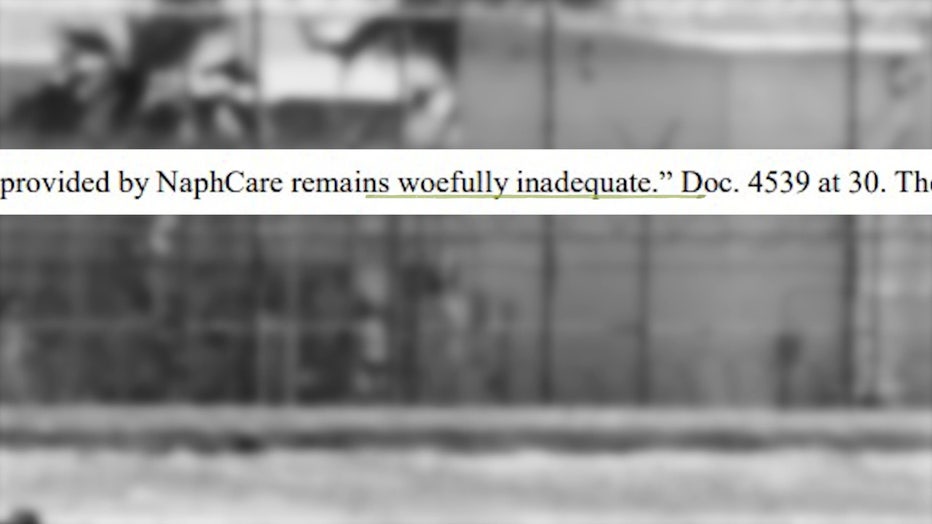
What they're saying:
"My whole neck – I’ve lost four inches in my height," said Mary Whatley over the phone.
Whatley is incarcerated at the Perryville women’s prison, serving time for weapons misconduct. She’s having issues with what’s called the thecal sac – a protective sheath around the spinal cord – and she needs surgery.
"I have to have this surgery or I’m going to be paralyzed, is what the nurse practitioners or providers here told me," said Whatley.
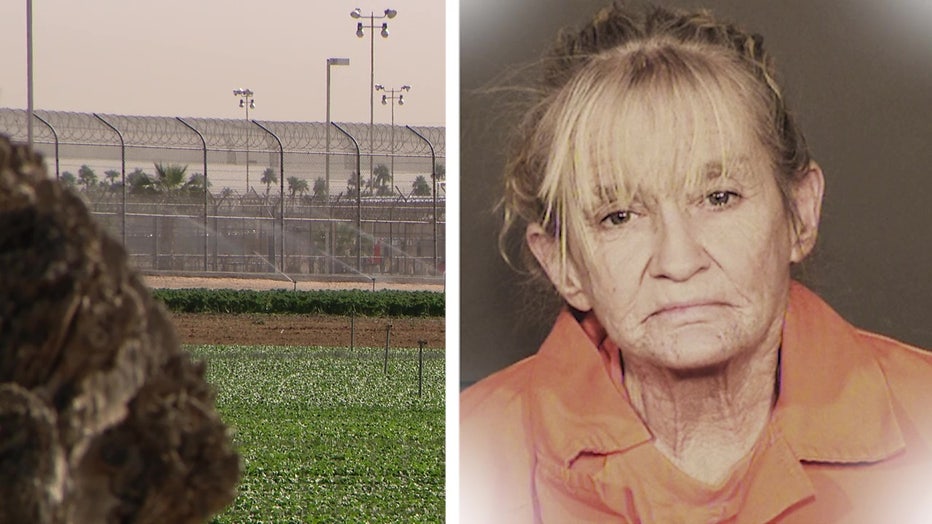
Mary Whatley
She has a history of vertebrae fractures and neck trauma that causes numbness, tingling, and pain in both the neck and arms. Whatley doesn’t know when her next appointment will be.
"And it’s not just me; there are other women here that need surgeries and care that they’re not getting," said Whatley.
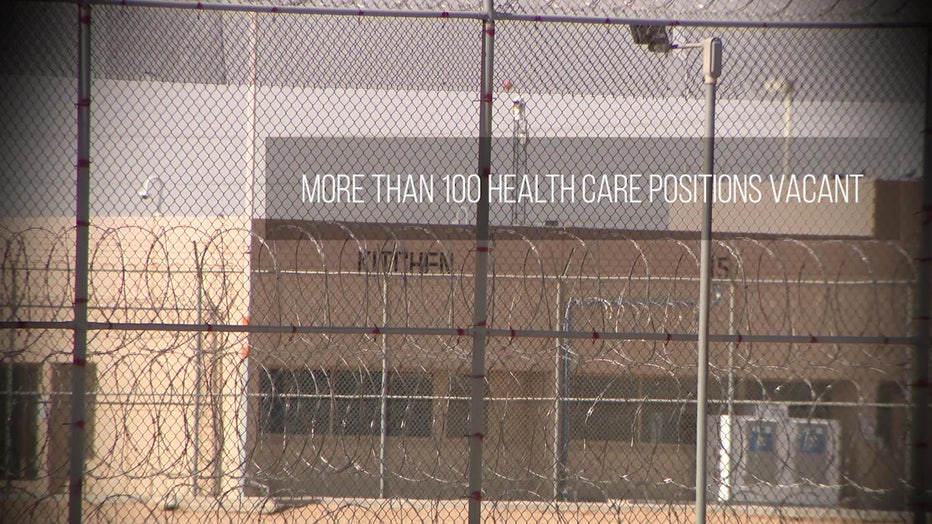
READ MORE: Pregnant in prison: Expectant mother says nutrition is inadequate at Perryville complex
There are more than 100 healthcare positions vacant, the ACLU says via its latest motion in the ongoing Jensen v. Thornell lawsuit.
"It’s a battle in here," said Erin Taylor.
Taylor is another inmate at the Perryville Complex. She has brain cancer.
"It’s very hard to get appointments," she said.
In 2022, she had surgery to get some of the tumor removed. She says there was a long wait to receive radiation treatment.
"For about 15 months, I asked for some aftercare. Radiation didn’t begin until July 2023," Taylor recalled.
She also says there’s been miscommunication between the prison’s medical staff and her oncologist regarding how long her chemotherapy should last.
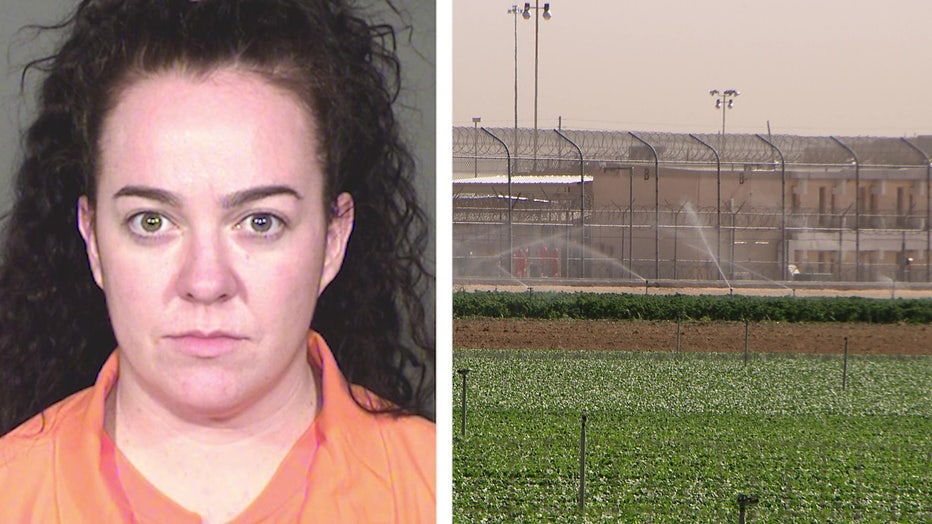
Erin Taylor
Dig deeper:
In the motion for a receiver to take over health care throughout the state’s prisons, ADCRR is accused of frequently using telehealth when it’s clinically inappropriate and dangerous.
Due to a judge’s order to fix constitutional violations found at trial, court-appointed experts reviewed countless death reports that documented "horrible care" leading to "unnecessary suffering and lost opportunities for treatment and cure" - and ultimately death, per the ACLU.
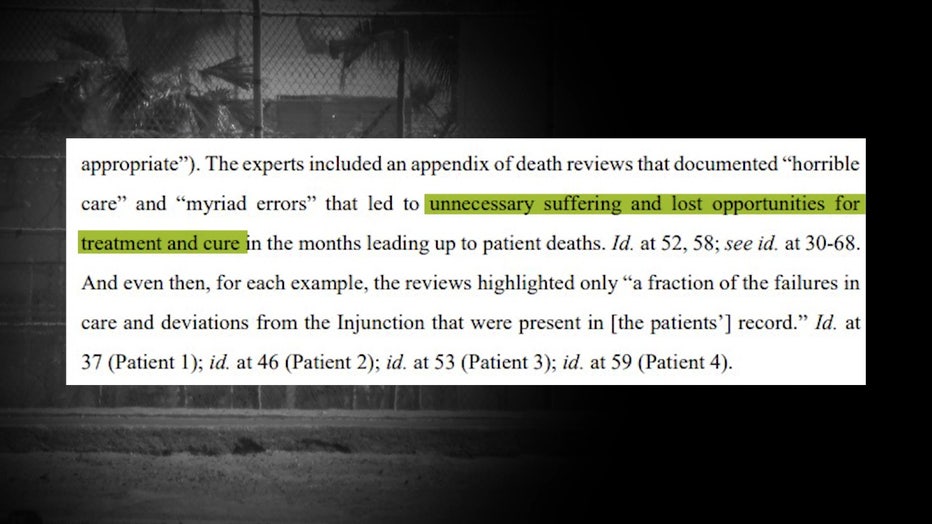
"The ways that those things are happening come through a few structural issues that we identified in our motion. One of these is extreme delays in people getting the care they need. Another one is a real difficulty getting people to specialty appointments."
As for the staffing shortage, Beall says there aren’t enough physicians providing care; instead, nurses who don’t have the same training," said Lauren Beall, an attorney for the ACLU of Arizona.
Court expert reports say, "NaphCare offered a paltry two-dollars-per-hour increase to physician salaries between December 2023 and July 2024 and has made none since."
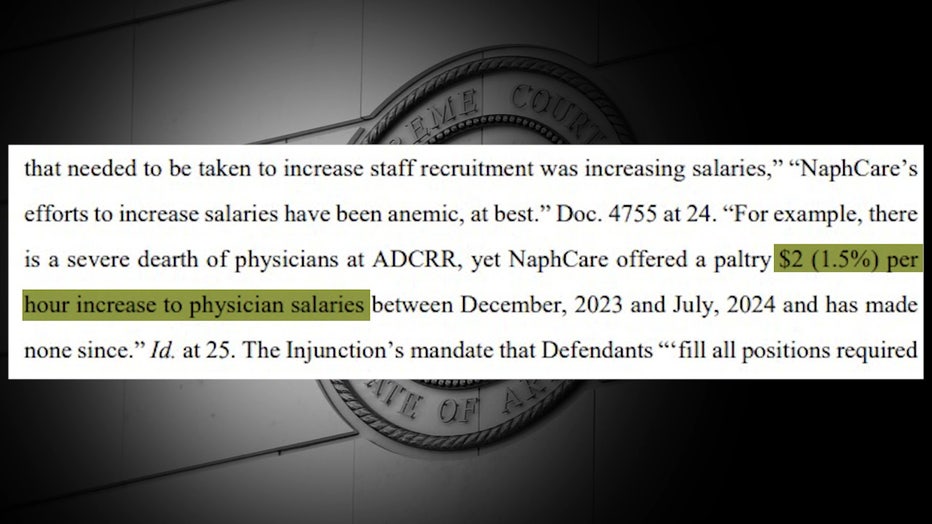
The other side:
A spokesperson for NaphCare says the provider is "proud of our record of successfully recruiting and retaining healthcare staff to work in Arizona’s prisons" and "there are more healthcare professionals working in ADCRR prisons than ever before," also saying each of the nine state prisons has a full-time medical director with 13 additional physicians across the state and two more have been hired.
There are openings for two full-time and one part-time physician. NaphCare also says pay rates compete with market rates.
Meanwhile, ADCRR’s responses to court monitors’ reports cite challenges with changes through third-party vendors.
"Passing the buck and saying, ‘you know this is NaphCare's responsibility’ is simply not an excuse, and it's not going to work for all of the people and all of the families of the people who are incarcerated," said Beall.
We’ve also asked ADCRR about Erin Taylor and Mary Whatley’s alleged treatment delays. The department is prohibited from discussing inmates’ private and protected health information with third parties, but a spokesperson sent us the following statement:

